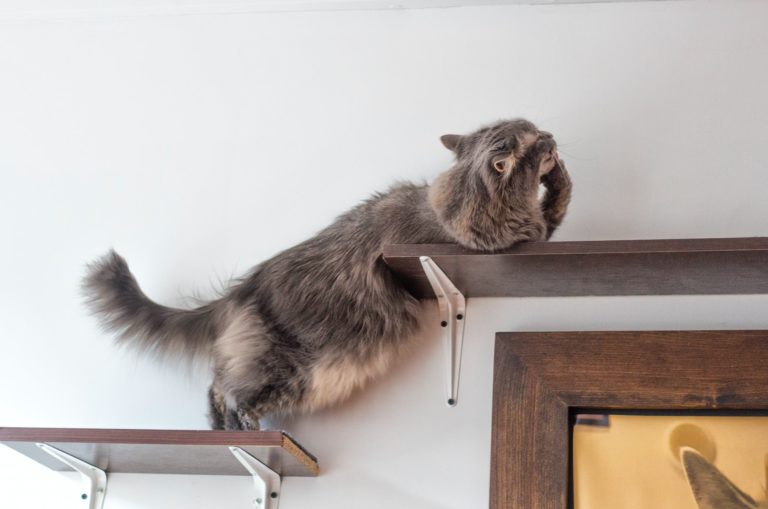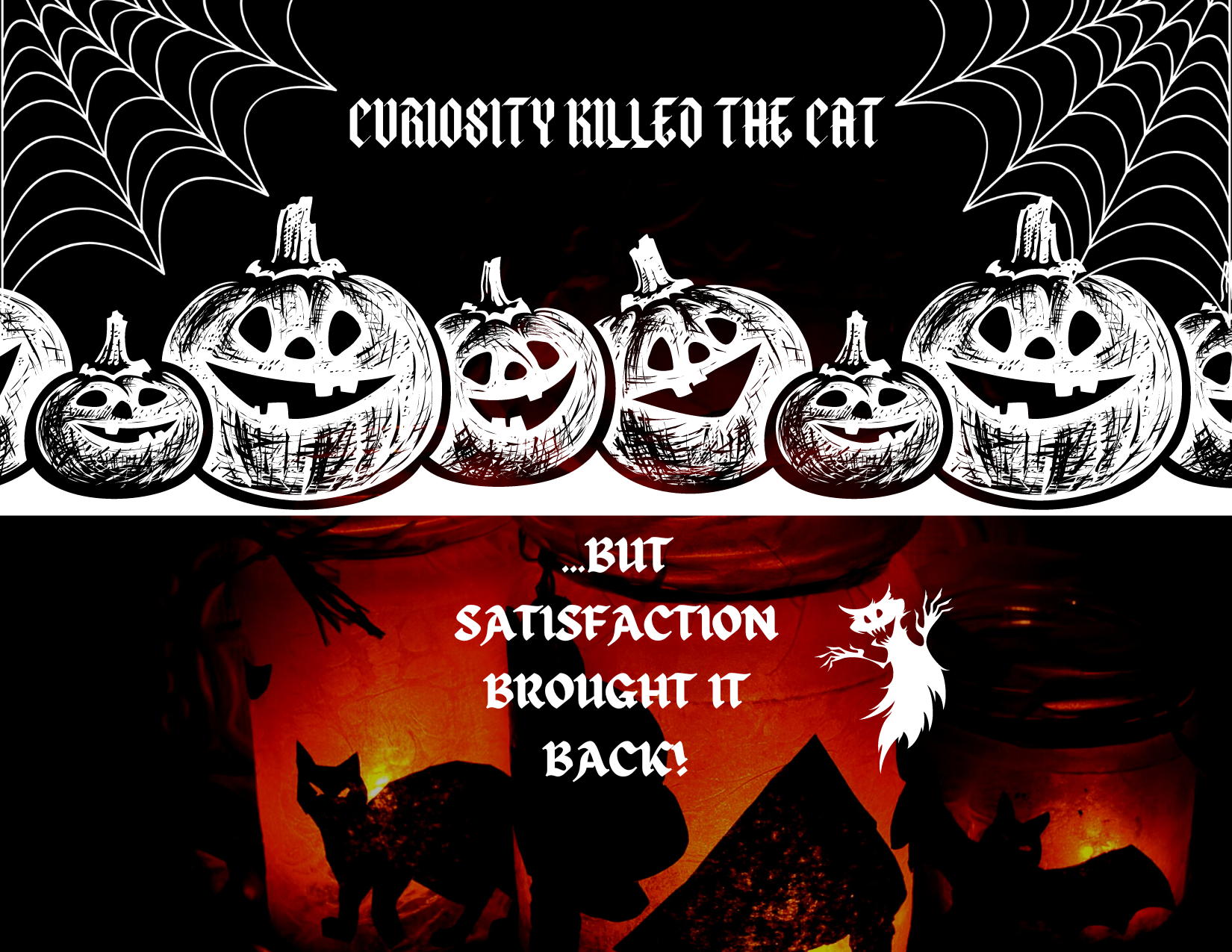The meaning of ‘curiosity killed the cat’ is easy to summarise: don’t go poking your nose into other people’s affairs, and don’t be overly inquisitive about things which don’t concern you, as it will only cause trouble. The phrase suggests that a cat that went nosing about in something it shouldn’t have came a-cropper and died as a result.
Buy Curiosity Killed the Cat Print, Wall Art, Poster, Cat Wall Art, Digital Download, Satisfaction Brought It Back, Wall Decor, Quote Wall Art Online in India – Etsy
Curiosity Killed the Cat, Satisfaction Brought It Back. Curious people can be very fascinating. They want to perceive more about the world around them. Another way for saying curious is inquisitive. The verb “inquire” funds to ask one or more inquiries. However, prying is a form of curiosity nevertheless not in a good way. Someone who is said

Source Image: quotefancy.com
Download Image
Ask me no questions and I’ll tell you no lies.” The longer version of the idiom includes a replay to the original idiom in the later half, “curiosity killed the cat, but satisfaction brought it back.” A variation of the longer phrase was first printed in The Galveston Daily News (August 10, 1905), Curiosity killed a cat; but it came back.”

Source Image: quotefancy.com
Download Image
Stephen King Quote: “And didn’t they say that, although curiosity killed the cat, satisfaction brought “Curiosity killed the cat, but satisfaction brought it back” many people don’t actually know the second half of the idiom. It’s used to give a warning or tell someone not to be curious however when adding the rest of the idiom it shows that being curious is not always a bad thing sometimes you need to see things for yourself.

Source Image: boneandyarn.com
Download Image
Curiosity Killed The Cat But Satisfaction Brought Him Back
“Curiosity killed the cat, but satisfaction brought it back” many people don’t actually know the second half of the idiom. It’s used to give a warning or tell someone not to be curious however when adding the rest of the idiom it shows that being curious is not always a bad thing sometimes you need to see things for yourself. The origin of the phrase “curiosity killed the cat” is difficult to trace since it goes hundreds of years back. However, the first recorded usage of this phrase can be found in Ben Johnson’s play Every Man in His Humour from the late 16th century. The original phrase was “care killed a cat.”. We all know the meaning of this phrase
Cat Wall Shelves: Giving Your Feline a New Dimension of Exploration
Origin On 10 August 1905, The Galveston Daily News newspaper (page 6) printed the following quotation without the word satisfaction: [4] Curiosity killed a cat; but it came back. On 23 December 1912, the earliest known printed reference to this variation of the proverb is found in The Titusville Herald newspaper (page 6): [5] curiosity killed the cat | The Writer Within

Source Image: kathk1984.wordpress.com
Download Image
Curiosity killed the cat, and satisfaction brought it back | Curiosity killed the cat, Bring it on, Cat tshirt Origin On 10 August 1905, The Galveston Daily News newspaper (page 6) printed the following quotation without the word satisfaction: [4] Curiosity killed a cat; but it came back. On 23 December 1912, the earliest known printed reference to this variation of the proverb is found in The Titusville Herald newspaper (page 6): [5]

Source Image: pinterest.com
Download Image
Buy Curiosity Killed the Cat Print, Wall Art, Poster, Cat Wall Art, Digital Download, Satisfaction Brought It Back, Wall Decor, Quote Wall Art Online in India – Etsy The meaning of ‘curiosity killed the cat’ is easy to summarise: don’t go poking your nose into other people’s affairs, and don’t be overly inquisitive about things which don’t concern you, as it will only cause trouble. The phrase suggests that a cat that went nosing about in something it shouldn’t have came a-cropper and died as a result.

Source Image: etsy.com
Download Image
Stephen King Quote: “And didn’t they say that, although curiosity killed the cat, satisfaction brought Ask me no questions and I’ll tell you no lies.” The longer version of the idiom includes a replay to the original idiom in the later half, “curiosity killed the cat, but satisfaction brought it back.” A variation of the longer phrase was first printed in The Galveston Daily News (August 10, 1905), Curiosity killed a cat; but it came back.”

Source Image: quotefancy.com
Download Image
240 Curiosity killed the cat, satisfaction brought him back. ideas | me quotes, words, words of wisdom “Curiosity killed the cat“, with the full version being “Curiosity killed the cat, but satisfaction brought it back,” is a very common proverb. It suggests that being too curious or inquisitive is dangerous. If one reaches too far into matters that don’t concern them, they may find themselves in danger.

Source Image: pinterest.com
Download Image
The art and science of asking questions. – Inquisitive Leader “Curiosity killed the cat, but satisfaction brought it back” many people don’t actually know the second half of the idiom. It’s used to give a warning or tell someone not to be curious however when adding the rest of the idiom it shows that being curious is not always a bad thing sometimes you need to see things for yourself.

Source Image: inquisitiveleader.com
Download Image
Did Curiosity Kill The Cat? – The Curiosity Series – Part 1 – PktFuel.com The origin of the phrase “curiosity killed the cat” is difficult to trace since it goes hundreds of years back. However, the first recorded usage of this phrase can be found in Ben Johnson’s play Every Man in His Humour from the late 16th century. The original phrase was “care killed a cat.”. We all know the meaning of this phrase

Source Image: pktfuel.com
Download Image
Curiosity killed the cat, and satisfaction brought it back | Curiosity killed the cat, Bring it on, Cat tshirt
Did Curiosity Kill The Cat? – The Curiosity Series – Part 1 – PktFuel.com Curiosity Killed the Cat, Satisfaction Brought It Back. Curious people can be very fascinating. They want to perceive more about the world around them. Another way for saying curious is inquisitive. The verb “inquire” funds to ask one or more inquiries. However, prying is a form of curiosity nevertheless not in a good way. Someone who is said
Stephen King Quote: “And didn’t they say that, although curiosity killed the cat, satisfaction brought The art and science of asking questions. – Inquisitive Leader “Curiosity killed the cat“, with the full version being “Curiosity killed the cat, but satisfaction brought it back,” is a very common proverb. It suggests that being too curious or inquisitive is dangerous. If one reaches too far into matters that don’t concern them, they may find themselves in danger.